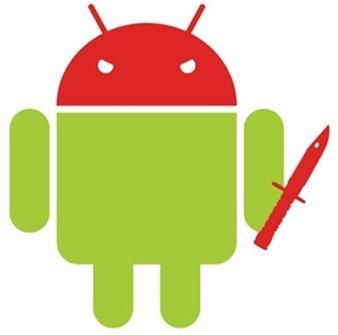Let me hit you with some opinion, mobile fans. Let me ask you to consider the following hypothetical. This will require you to use your imagination. You ready? Okay, here goes:
- Big platforms aren't cool.
- You know what's cool?
- New platforms.
Yes, I'm generalizing. Yes, I'm paraphrasing The Social Network 's faux-Sean Parker to make a point. And no, I don't really think that Android, iOS, and Windows Phone are somehow "uncool." But they are kind of predictable ... right? They're "comfortable." They do what we want them to do (usually) and behave how we expect them to (most of the time). They get the job done. They're reliable.
From time to time, everyone needs some excitement, a change in the routine. A kick in the pants. That's true for most humans, but especially so our particular breed of geek: the novelty-obsessed mobile maven who swaps smartphones almost as often as he switches Brita filters.
About every two months (or once a year if you live at my house).
We electro-neophiliacs love new gadgets, and in a world where smartphone hardware "variation" basically means deciding what color you'd like your oversized rectangular slab painted in, we're forced to seek much of our novelty in software. And, improbably, 2013 has proven a stellar year for new software platforms in the mobile space.
Think about it. Currently vying for the attention of consumers and the media are no less than six contenders for the coveted fourth-place slot, the open gap hovering just beneath iOS, Android, and Windows Phone. Who exactly occupies that third-place slot varies depending on what factors you consider, by the way: Windows Phone is getting a bit more press these days, but in terms of numbers, BlackBerry still has it beat in many markets worldwide. Microsoft's platform also struggles for every new million customers it gains, but then again, BlackBerry has been in a mind- and market share free-fall for some time, so ... fight it out in the comments, folks.
Speaking of the folks in Waterloo: the new BlackBerry 10 OS leads the pack of smaller platforms in terms of visibility, coming as it does from the industry's most venerable player. Alongside it, though, are a slew of competitors including Tizen, Firefox OS, Mobile Ubuntu, Sailfish OS, and Open webOS. We're still waiting for platforms like Tizen and Open webOS to get a little further along in development before taking them for a spin, but we've been pretty excited in our early looks at others, like Mobile Ubuntu:
Even though it's clearly not yet ready for prime time, Mobile Ubuntu is important in that it inspires in us an excitement that a mere app can't hope to replicate. Maybe it's the promise of an entirely new user experience, or maybe it's the strange kind of proto-nostalgia that only high-speed sectors like tech can inspire. We're either so hungry for new UI ideas or so covetous of the boomtown years of 2007-2010 that many of us worship almost any new platform that comes along.
But is that attitude realistic? Is there really room for a fourth player in the insanely crowded smartphone space?
In terms of a fourth platform simply existing , the answer is yes. Firefox OS is a good example of a platform seeking growth opportunities in unconventional markets and pushing the boundaries of what's possible with web-based technologies. Mozilla seems bent on selling Firefox OS as one that's free from proprietary entanglements, and it says the platform "fosters greater participation in the value chain." For people paid to talk about value chains all day, that's (probably) great, and the platform may do very well. But our hands-on with the new OS didn't show us much of the eye-catching innovation required to pique consumer interest:
That's the first problem with trying to break in to the rapidly jelling mobile space: many UI paradigms have already been established. When Android 1.0 landed in 2008, the notification shade was an earth-shattering idea. When webOS arrived the following year, the Palm Synergy software that integrated contacts across ecosystems was a mind-blowing feature. When Microsoft started offering social hubs baked right into the OS in 2010's Windows Phone 7 release, it was a new and exciting feature to many. Now, though, these features are increasingly commonplace as software-makers "draw inspiration" from one another in the process of competing. Now you can find top-down notification drawers, contact-linking, and social-media hubs on many platforms. So it's hard to break into the scene with something truly original.
Some platforms suffer from this problem less acutely than others. Mobile Ubuntu, for example, brings an impressive and unique UI concept to the table — but it suffers in terms of stability and isn't yet complete enough to be considered a true competitor. We've only had limited hands-on time with Jolla's Sailfish OS, so we can't speak to its stability, but it looks and feels more finished than the others, while also delivering a very pleasing aesthetic experience:
But that's where the other big problem surfaces. Even if you deliver a beautiful, rock-solid OS, you need to support it with an ecosystem. Platforms like BlackBerry 10 and Sailfish offer the ability to run Android apps in an effort to combat the problem of a 700,000-title app gap, but the experience -at least on BlackBerry- is sub-par. As a result, newer smaller companies almost invariably offer developers an SDK to build native apps, but that's not a guarantee that developers will actually do so. That's true even for some behemoth corporations; just ask Microsoft.
To be fair, some companies aren't exactly "in it to win it." As Jolla CTO Stefano Mosconi told me in an interview a few weeks back, the company isn't necessarily as interested in competing with other players as it is in collaborating with them to make excellent open-source mobile products. As refreshing as that is to hear in this normally cutthroat world, it's also slightly disappointing, because it means we're stuck with the same Big Three dominating the landscape for a while longer, yet.
“Got a problem with that?”
So there's absolutely room for the mythical "fourth platform," yes. The real question, in my view, is whether the fourth-place contender has any staying power. We can count on a vicious fight between BlackBerry and Windows Phone to occupy third place, but in the unlikely event one of them falters (i.e., if Microsoft exits the mobile space or BlackBerry goes out of business), it will take a contender with a special combination of skill, resolve, and hunger to tough it out in the number-four spot. Given how much we don't yet know about many of these companies' mobile divisions, the question of who exactly that might be remains open. And thus, a little slice of the wild-west spirit of yesteryear is maintained.
And for now, that's okay by me.
Angry Android image source: Redmond Pie



